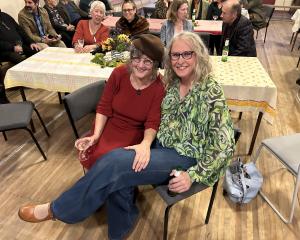
Helen Dunmore's Birdcage Walk is a slow-burning thriller set in Bristol in 1792, the time of the French Revolution.
BIRDCAGE WALK
Helen Dunmore
Penguin Random House
By MARGARET BANNISTER
Prize-winning English author Helen Dunmore has written a great many books, including those for children, but this is the first time I've encountered her and she impressed from the beginning.
A brief paragraph explains the building boom in Bristol in 1792, the time of the French Revolution, thereby providing a brief but eloquent setting for the story, both locally and internationally.
The heroine is one Lizzie Tredevant, her married name. The story focuses around the relationship between herself and her husband, John Diner Tredevant, who is involved in the building boom, building grand houses above the Gorge. Recently married, Lizzie has a background in which revolutionary politics has played a major part. She is thus somewhat less biddable than most wives, who at the time became entirely the property of their husbands on marriage. When her mother dies after a late pregnancy, she determines to look after the child herself, despite her husband's objections.
John Tredevant is a mysterious character in many ways, and his grand plans fall apart as the revolution plays out in France and generally confidence falters. His needs, it seems, are as least as much emotional as physical, and he struggles with Lizzie's forthright actions and his real but unmentioned fear of losing her.
The discovery of a unmarked grave begins to bring into question Tredevant's story of the death of his first wife, Lucie, when she had returned to France.
The story, which has become increasingly tense as time passes, leads to a dangerous journey in which all becomes clear. Lizzie, choosing to be alone, left behind by Tredevant, must make courageous decisions for her own future.
A thoroughly good read.
Margaret Bannister is a retired Dunedin psychotherapist and science teacher.












